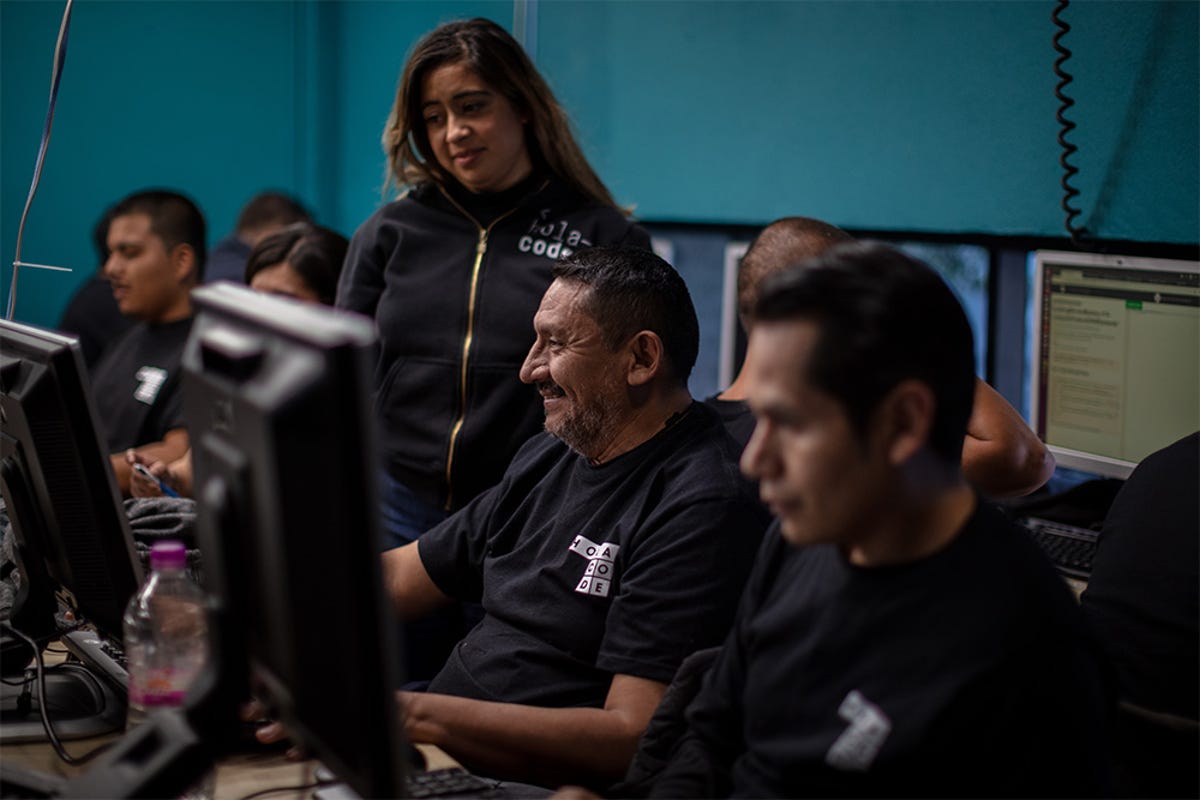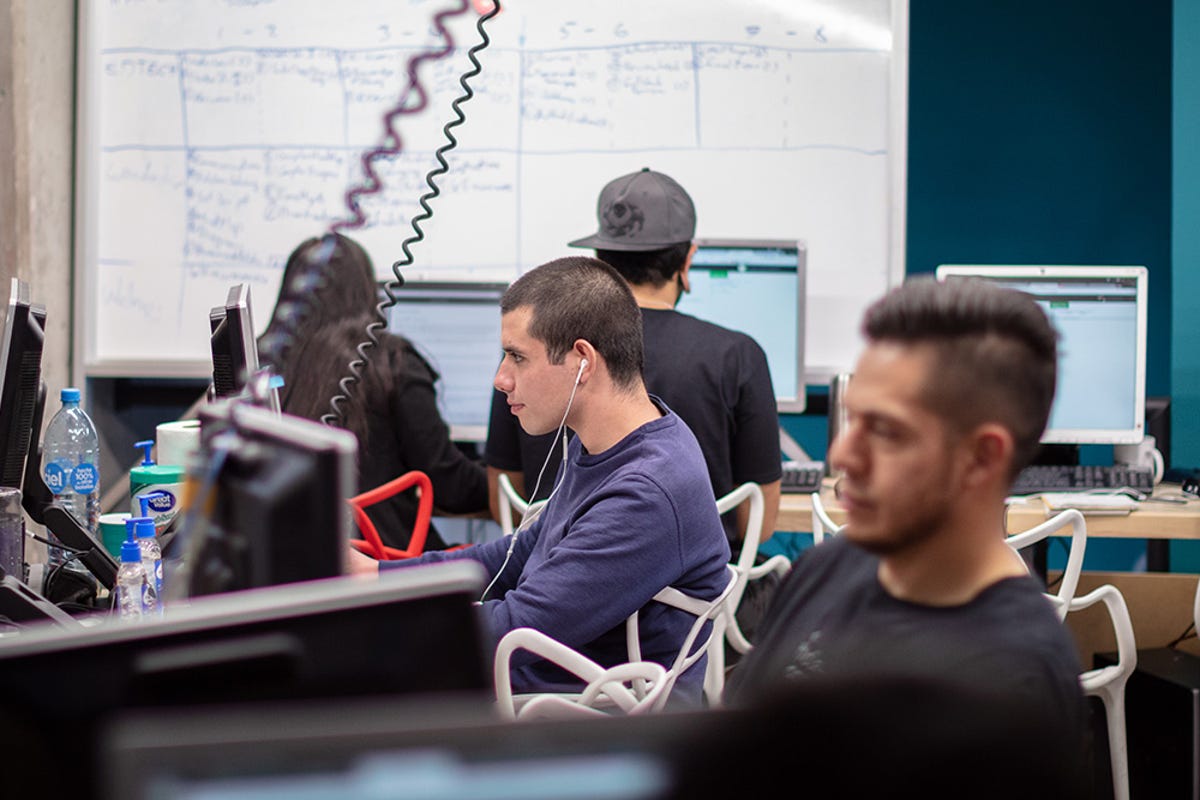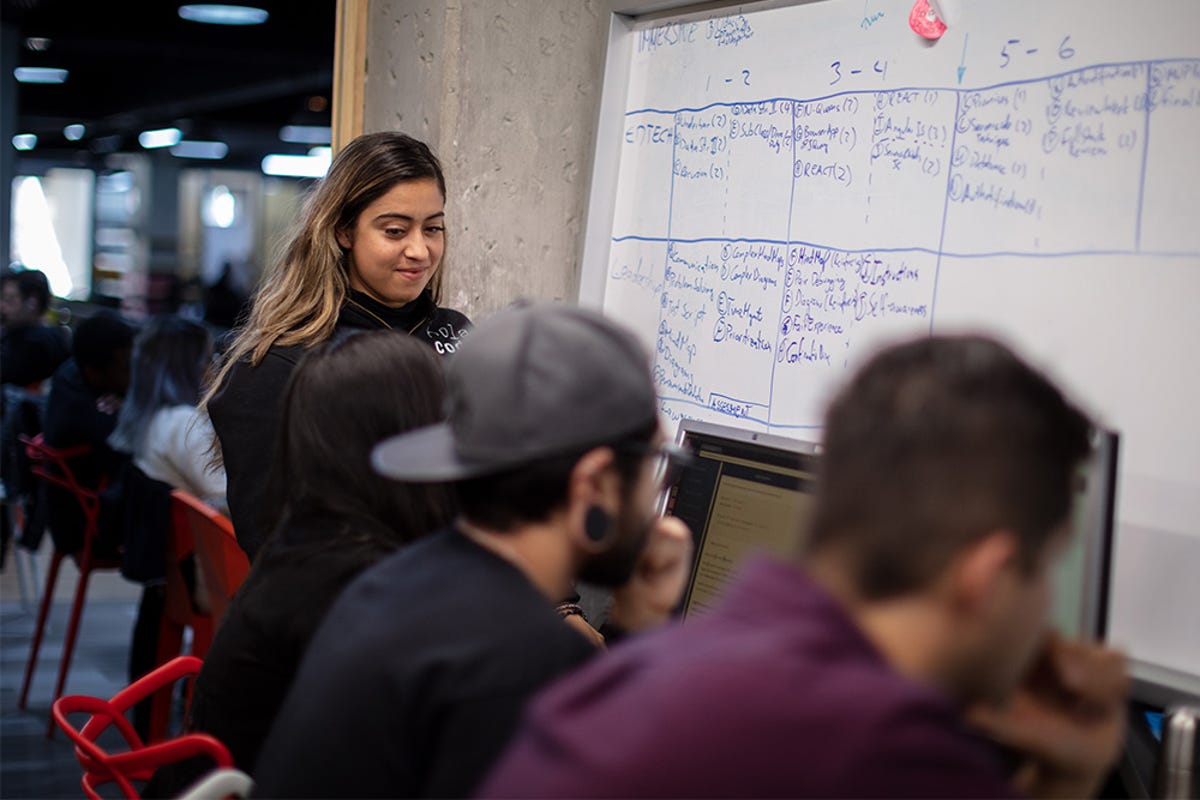Fellow Portrait
Marcela Torres
Holacode
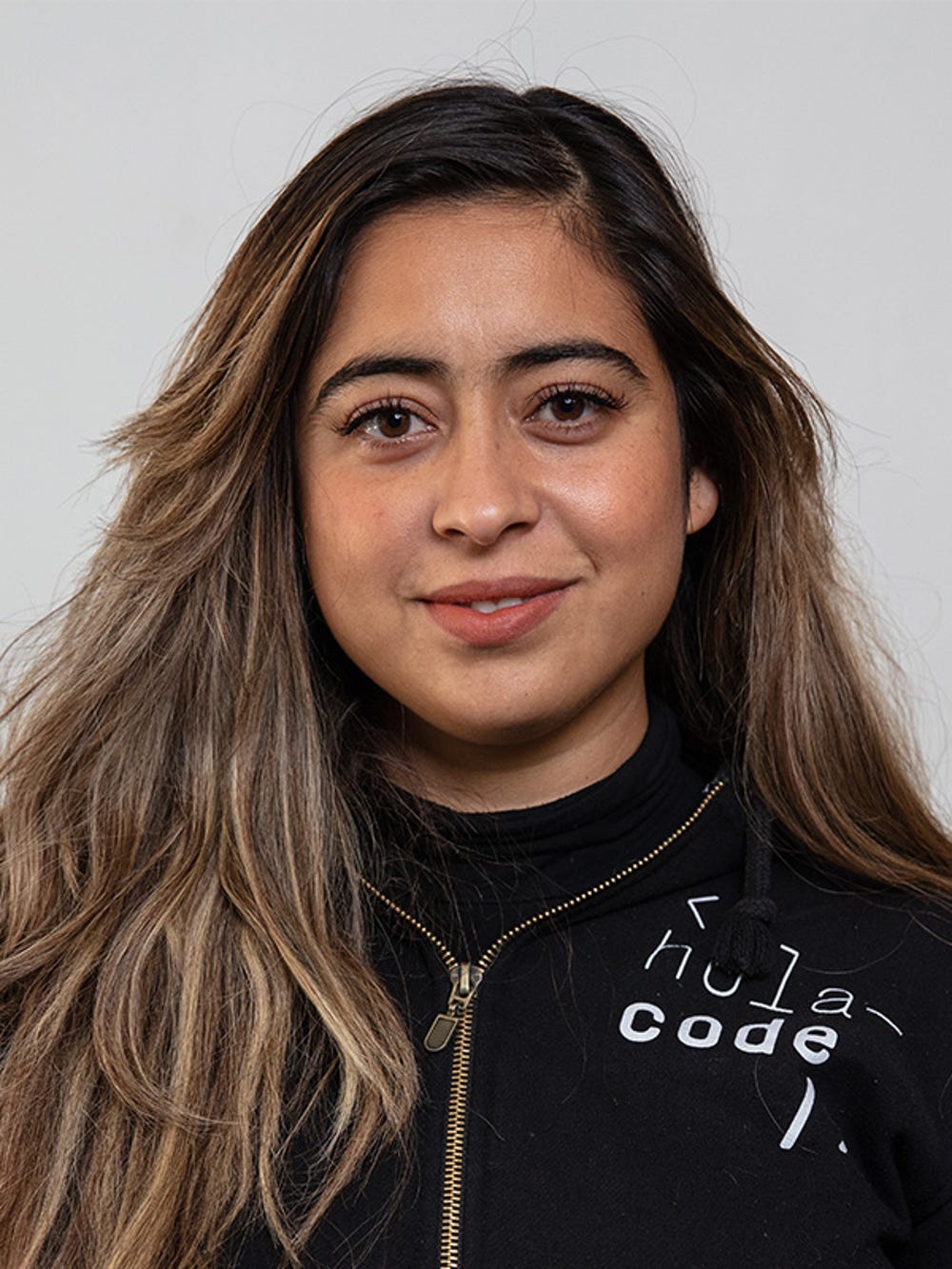
Updated March 2019
In the US, they’re called “Dreamers”, young Mexicans whose parents brought them to America, dreaming of a better life. But come adulthood, they can get a harsh wake-up call: undocumented Mexicans raised and schooled in the US can be deported as adults. The figures show they are not alone. In the first 9 months of 2017, according to official Homeland Security statistics, over 119,000 undocumented Mexicans were sent back to Mexico.
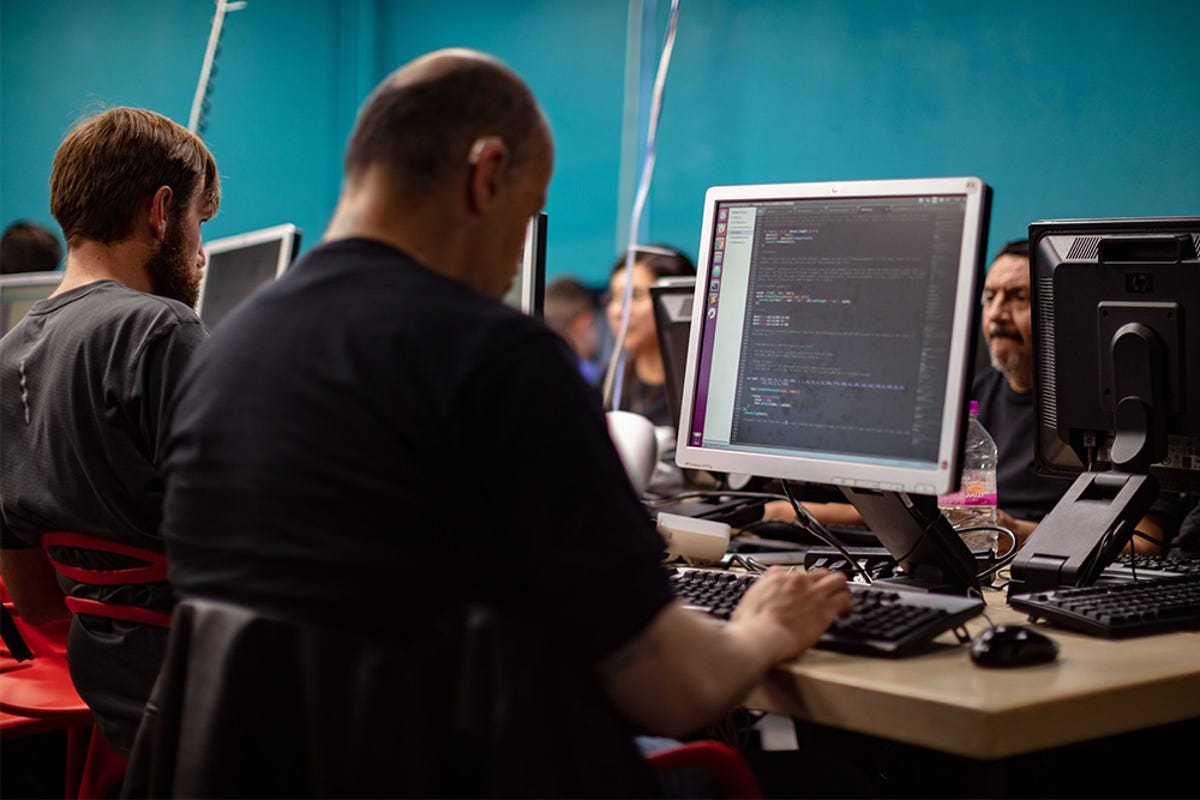
Agents of change
The experience is frequently traumatic. With no home, no contacts and no job, they have to find their feet fast. Sensitive to the plight of these and all refugees, returnees and deportees to Mexico, 31 year-old Marcela Torres decided to find a way to offer them opportunities. A researcher in social sciences disillusioned with international development and keen to facilitate social change in her home country, Marcela set about identifying a solution to help these people build a new life. “The goal is to let them become their own agents of change,” she states.
I became obsessed with the idea of making edtech more accessible while designing a project for a young community who could benefit from it.
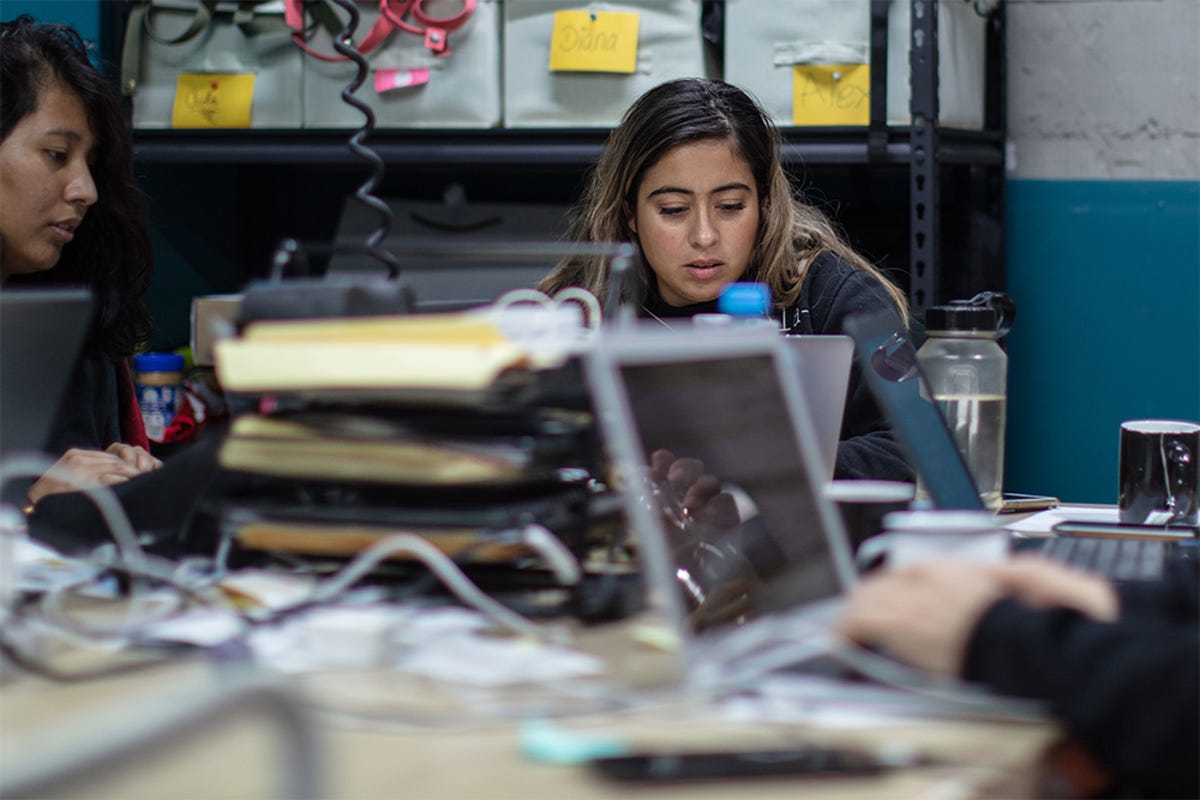
A people-centred approach
The result is Holacode, an Edtech bootcamp that teaches them the fundamentals of software engineering. Its disruptive tuition model eschews hierarchies and grades, preferring to prepare students with a community of “Hackers in Residence”, Tech Mentors and Leadership and Wellness coaches, all geared to make them fully ready to enter the job market. “It’s a real co-creation, built with their cooperation from the bottom up. Every step of the programme is designed to be mindful of the needs of our students and the obstacles they face,” Marcela states. Services include three meals a day, a daycare centre to encourage young mothers to apply and a financial inclusion service with Santander, to help students open their first bank account.
A big draw is that no knowledge in tech is required. Holacode’s admissions process takes a 360° view, targeting the overall aptitudes that will make a good software engineer. Each training series last five months and welcomes 34 students. The third cohort is currently underway, but from July 2019, this deeply social enterprise is planning to double each cohort of students, once new funding is secured through a Series A round.
Our students are young women and men who returned from the US to Mexico. Upon arrival they face a country they don’t know, a language they don’t master and countless bureaucratic obstacles that push them into poverty traps,
Paying it forward
Typically excluded from access to loans and housing, students also receive a $260 stipend alongside training. Repayment of tuition fees and the stipend is deferred until employment. 85% of graduates have secured jobs in their new field, with average income increasing sixfold from their previous jobs, most frequently in call centres. No defaults have been registered, but to mitigate potential risks, Holacode has also struck its first partnership with an employer for a direct repayment scheme, deducted from the graduate’s salary.
Marcela has faced many hurdles in her entrepreneurial path, which have steeled her determination. “I was a young woman in social sciences with no business or coding diplomas. The tech sector didn’t recognise me and most investment funds didn’t take me seriously. I received monumental negative feedback on a constant basis. But I had to keep pushing!”
I was a young woman in social sciences with no diplomas in business or coding. The tech sector didn’t recognise me and most investment funds didn’t take me seriously. I received monumental negative feedback on a constant basis. But I had to keep pushing!
Human capital
The human impact her business brings through the pay-it-forward culture it promotes is what drives Marcela. Students who find employment regularly offer a bed to new cohorts who are homeless or in shelters. “We see migration as positive,” says Marcela. “Instead of building walls, we want to build bridges.” Holacode is open to all refugees, returnees and deportees to Mexico, including most recently those from Venezuela. In short, to all who are dreaming of a new future, on the Mexican side of the border.
